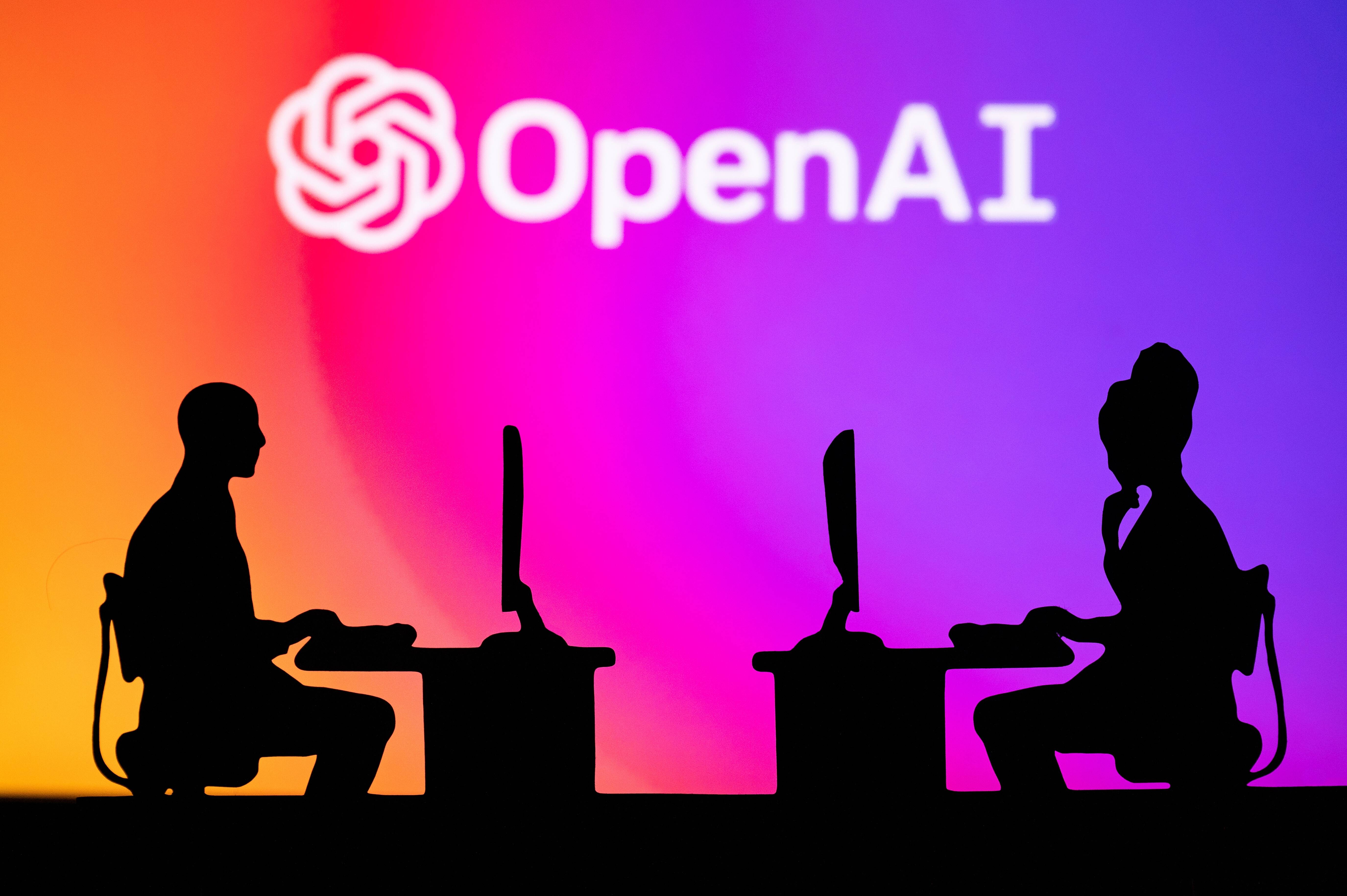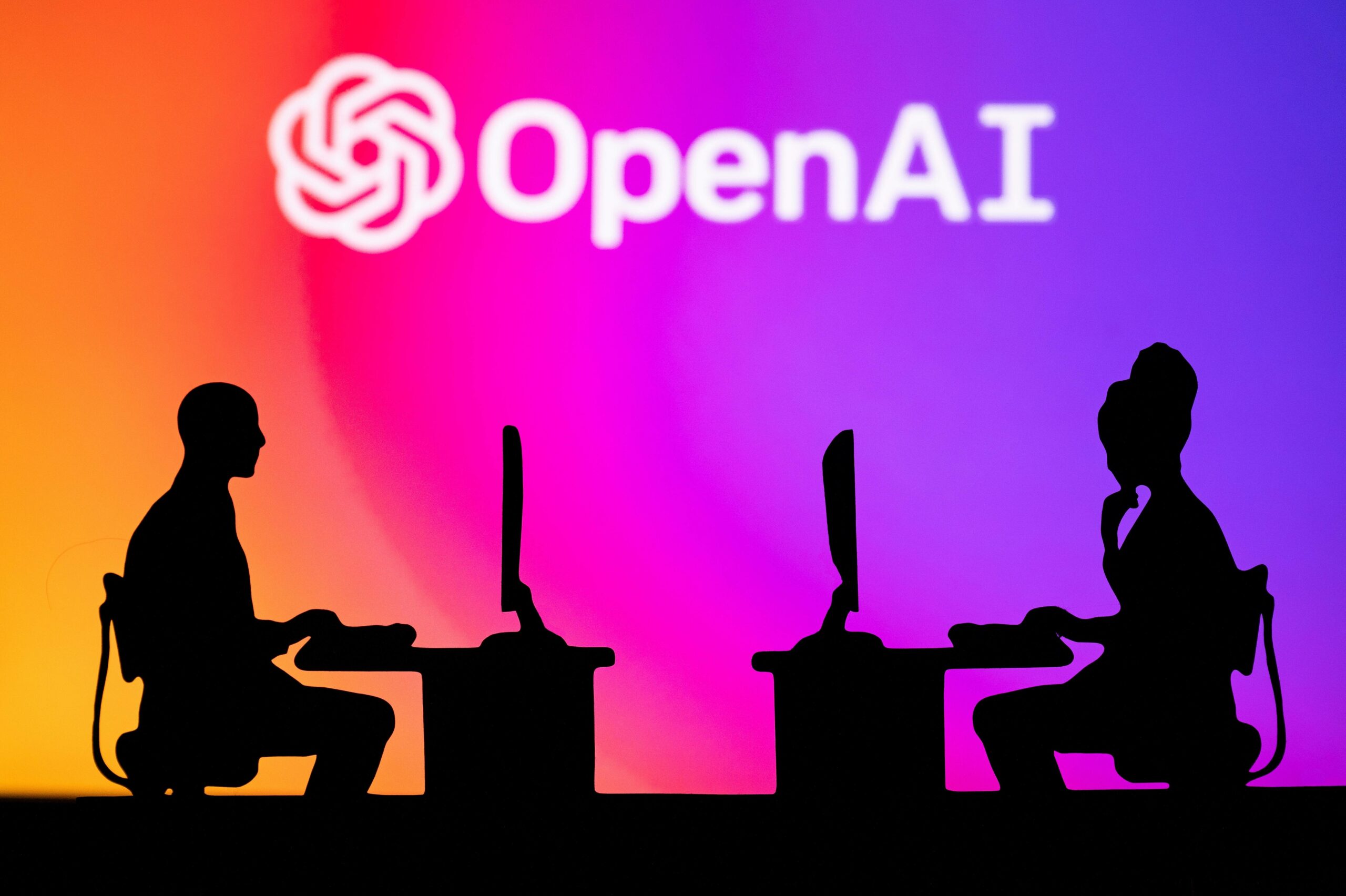
Comment If the future of work is a choice and "not a predetermined destiny" – as Microsoft puts it in a recent report – it would be nice to know why Redmond is so intent on shoving its version of that future down our throats.
Microsoft's document is called "New Future of Work" and emerged last month with the suggestion we should not be asking how AI will impact work, but how we want it to. However, the report reads more like an attempt to sell the value of Microsoft's $13 billion investment in OpenAI rather than an actual consideration of how AI will change the workplace.
Yes, the document admits, AI has problems. While it can speed up some work (writing tasks were claimed to be 37 percent faster with the technology, for example), it can make other work less accurate. Research cited the report found a 19 percent decrease in accuracy by mavens from Boston Consulting Group who used large language models – not great for one of the biggest consulting firms in the world.
As we've seen the Windows maker claim before, a problem of Microsoft's own creation (or at least one that it's supported by partially funding OpenAI's rise to dominance) is presented as one that only Redmond can fix.
Deeper inside the report, Microsoft touts its solution to the problem of LLM inaccuracies: Copilot. Ready, willing and able whether you want it or not to swoop in and save the day.
Like other LLMs, "users also report Copilot reduces the effort required," Microsoft beams, citing one of its own studies. An added bonus is Copilot's alleged superiority, as its "effects on quality are mostly neutral," Microsoft claims. "Mostly neutral" isn't exactly a rousing endorsement, but it's still an argument that Copilot will solve your AI ills.
"A survey of enterprise users with access to Copilot also showed substantial perceived time savings," according to Microsoft. Note the use of "perceived." It adds that "68 percent of respondents agreed that Copilot actually improved the quality of their work."
But did it really?
Since Copilot Pro was announced earlier this month – a premium version of the OpenAI-powered LLM bot that integrates with M365 products – the product has generated complaints that it's not working well, is overpriced, and is a solution in search of a problem.
Microsoft has tried to push Copilot as a coding product too, claiming a study of GitHub Copilot users found improvements in speed along with the qualitative finding that developers "appreciated the capabilities of AI programming assistance and find it a positive asset."
But other data suggests AI is making code more complex. As our sister site DevClass reported, AI coders like GitHub Copilot tend to suggest new code – but never recommend deleting or updating existing chunks. And who doesn't love applications that keep on getting bigger and more complex?
Microsoft's report also cites research that claims LLMs offer the most help to the least experienced workers. Just a few pages later, though, it reveals that writing prompts with just small semantic differences can lead to radically different results.
Whether the least experienced workers will be able to craft prompts that return accurate information is a serious question. But don't worry: "Copilot Lab is one Microsoft effort to help people learn how to effectively interact with LLMs … by providing a collection of suggested prompts," Redmond offers.
Which rather leaves users to hope that prompts generated by ChatGPT-based Copilot are precise enough that they produce good results, and not hallucinations – which is hardly guaranteed.
Microsoft will pick the future for you, thanks
Microsoft's report was published last month, before its most recent shoehorning of Copilot into M365 and – most crucially – before it became the second company in history after Apple to reach a $3 trillion valuation. In case you haven't been paying attention, the software titan's market cap rise has been attributed to its recent AI-everywhere push.
Looking back to the report, it makes sense that Microsoft is pushing hard on its AI investment. Thirteen billion dollars is a lot of sunken cost. That said, it's also attracting some serious regulatory scrutiny that could alter the outlook.
The US Federal Trade Commission announced last week that it was investigating Microsoft's investment in OpenAI along with other AI investments by big tech players. The European Commission and UK Competition and Markets Authority have also each launched their own investigations into whether the Microsoft/Open AI tie-up could lead to an anticompetitive situation.
Microsoft? Anticompetitive? Surely not.
The Windows giant concludes its report with the admonition that "the future of work is a choice, not a predetermined destiny" – and that we should be thinking about AI’s potential to shape that future.
"Several major actors in AI have stated what they think the future of work should look like," Microsoft muses in answer to its own question, then points to OpenAI's charter and its own vision for Copilot as possible futures.
Yet the report doesn't pause to imagine the future of work after miscreants use AI to publish garbage that pollutes search results and AI corpuses. Nor does the document ponder how organizations like OpenAI scraping data from the internet to train their models without payment might impact the creative industries.
Absent such considerations, a Microsoft-driven future of AI everywhere without any thought to its quality is in prospect.
So, sure, you can choose your own future of work. It'll just be on Microsoft and OpenAI's terms, if they have anything to say about it. And boy, do they. ®
- SEO Powered Content & PR Distribution. Get Amplified Today.
- PlatoData.Network Vertical Generative Ai. Empower Yourself. Access Here.
- PlatoAiStream. Web3 Intelligence. Knowledge Amplified. Access Here.
- PlatoESG. Carbon, CleanTech, Energy, Environment, Solar, Waste Management. Access Here.
- PlatoHealth. Biotech and Clinical Trials Intelligence. Access Here.
- Source: https://go.theregister.com/feed/www.theregister.com/2024/01/30/microsoft_openai_report/
- :has
- :is
- :not
- $3
- $UP
- 19
- a
- Able
- About
- about IT
- access
- According
- accuracy
- accurate
- actors
- actual
- actually
- added
- Adds
- After
- agreed
- AI
- ai investments
- AI right
- alleged
- along
- also
- an
- and
- announced
- answer
- anything
- Apple
- applications
- ARE
- argument
- AS
- asking
- asset
- Assistance
- At
- attempt
- attention
- attracting
- authority
- back
- BE
- became
- been
- before
- Big
- big tech
- bigger
- Billion
- Bonus
- boston
- Boston Consulting Group
- Bot
- but
- by
- called
- CAN
- cap
- capabilities
- case
- change
- choice
- Choose
- cited
- citing
- claim
- claimed
- claiming
- claims
- CO
- code
- Coding
- collection
- commission
- competition
- Competition and Markets Authority
- complex
- concludes
- consideration
- considerations
- consulting
- Cost
- could
- craft
- creation
- Creative
- crucially
- data
- day
- decrease
- developers
- DID
- differences
- different
- do
- document
- does
- doesn
- dollars
- Dominance
- don
- down
- each
- Earlier
- effectively
- effects
- effort
- emerged
- Endorsement..
- enough
- Enterprise
- Ether (ETH)
- European
- european commission
- everywhere
- exactly
- example
- existing
- experienced
- faster
- Federal
- Federal Trade Commission
- few
- Find
- finding
- firms
- Fix
- For
- found
- from
- funding
- future
- Future of AI
- Future of Work
- Futures
- generated
- get
- getting
- giant
- GitHub
- good
- great
- Group
- Hard
- Have
- haven
- help
- history
- hope
- How
- How To
- However
- HTTPS
- if
- imagine
- Impact
- improved
- improvements
- in
- industries
- information
- inside
- Integrates
- intent
- interact
- Internet
- into
- investment
- Investments
- isn
- IT
- ITS
- jpg
- just
- Keep
- Know
- lab
- Label
- language
- large
- Last
- later
- launched
- lead
- LEARN
- least
- less
- like
- ll
- Look
- look like
- Lot
- love
- major
- make
- maker
- MAKES
- Making
- Market
- Market Cap
- Markets
- McKinsey
- Microsoft
- might
- models
- Month
- more
- most
- mostly
- Neutral
- never
- New
- nice
- nor
- note
- of
- offer
- Offers
- on
- ONE
- only
- OpenAI
- or
- organizations
- Other
- our
- Outlook
- own
- pages
- pause
- paying
- payment
- People
- perceived
- percent
- pick
- plato
- Plato Data Intelligence
- PlatoData
- players
- points
- ponder
- positive
- possible
- potential
- precise
- Premium
- presented
- Pro
- Problem
- problems
- produce
- Product
- Products
- Programming
- prompts
- prospect
- providing
- published
- Push
- Pushing
- Puts
- qualitative
- quality
- question
- radically
- rather
- reach
- ready
- really
- recent
- recommend
- reduces
- regulatory
- report
- required
- research
- respondents
- Results
- return
- Reveals
- right
- Rise
- s
- Said
- Save
- Savings
- say
- scrutiny
- Search
- sell
- semantic
- sense
- serious
- several
- Shape
- should
- showed
- sister
- site
- situation
- small
- So
- Software
- solution
- SOLVE
- some
- speed
- stated
- Still
- studies
- Study
- substantial
- such
- suggest
- Suggests
- Supported
- sure
- surely
- Survey
- T
- tasks
- tech
- Technology
- tend
- terms
- than
- that
- The
- The Future
- The Future of Work
- the world
- their
- then
- they
- think
- Thinking
- thirteen
- this
- though?
- thought
- time
- titan
- to
- too
- trade
- Train
- tried
- Trillion
- Trust
- Uk
- updating
- us
- US Federal
- us federal trade commission
- use
- used
- users
- Valuation
- value
- Ve
- version
- vision
- want
- was
- we
- week
- WELL
- were
- What
- whether
- which
- while
- WHO
- why
- will
- willing
- windows
- with
- without
- Work
- workers
- working
- Workplace
- world
- worry
- would
- writing
- you
- Your
- zephyrnet










